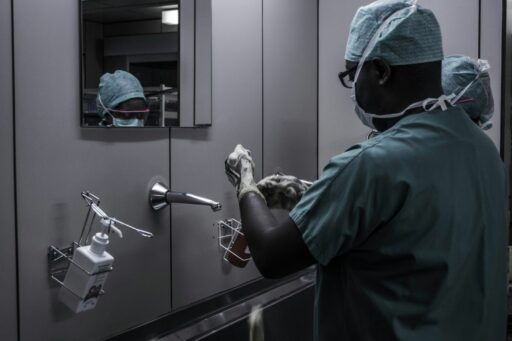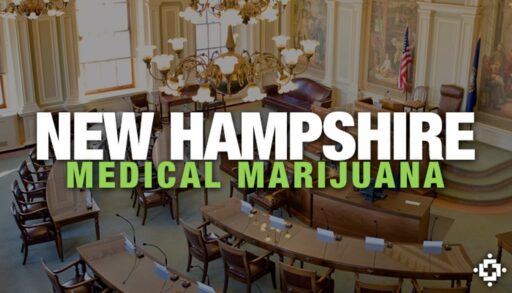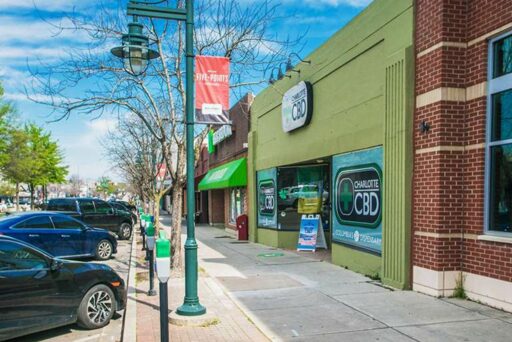Virginia’s marijuana laws have undergone significant changes since 2021, when the state became the first in the South to legalize marijuana for adult use. Despite legalization, the establishment of a retail market has been stalled due to political challenges. The passage of House Bill No. 698 marks a potential turning point, proposing a framework for legal sales, though its implementation remains uncertain with Governor Youngkin’s reluctance to advance the market. This article delves into the nuances of Virginia’s marijuana legislation, exploring the current legal landscape, economic implications, and the ongoing debate over consumer safety and market equity.
Key Takeaways
- Adult possession and home cultivation of marijuana are legal in Virginia, but there is no established retail market for recreational sales.
- House Bill No. 698, which could legalize retail sales of recreational marijuana, is pending approval from Governor Glenn Youngkin.
- Medical cannabis is accessible for patients with a healthcare provider’s certification, highlighting a distinction from recreational use.
- Virginia’s approach to cannabis legalization includes considerations for consumer safety, equity, and addressing harms from the War on Drugs.
- Governor Youngkin’s current stance indicates a lack of interest in creating a legal retail market for marijuana, affecting the potential for economic benefits and regulated access.
Overview of Virginia’s Marijuana Legalization

Historical Context and Current Status
Virginia’s journey with marijuana legislation has reached a pivotal point. Cannabis in Virginia is legal for both medical and recreational use. The Commonwealth has seen significant changes in its approach to cannabis, with the first medical marijuana dispensary opening its doors in August 2020. This marked a new era for Virginians, offering legal access to cannabis for therapeutic purposes.
The state’s stance on recreational use has also evolved, with adults now able to enjoy cannabis within the confines of the law. However, the journey to this point has been shaped by numerous legislative efforts and societal shifts. The legal landscape continues to develop, with ongoing discussions about how to best implement a fair and effective regulatory system.
The definition of "historically economically disadvantaged community" is crucial in understanding the nuances of Virginia’s marijuana laws. It includes areas with disproportionately high marijuana possession offenses and underutilized business zones, reflecting a commitment to address past disparities.
Virginia’s marijuana laws are not just about legalization but also about rectifying historical inequities. Criteria for applicants seeking licenses in the cannabis industry include considerations for veterans, residents of economically disadvantaged communities, and recipients of federal Pell Grants. This approach aims to ensure that the benefits of legalization are shared across various segments of society.
Home Cultivation and Adult Sharing
In Virginia, individuals who are 21 years of age or older are legally permitted to cultivate marijuana for personal use. Each household is allowed to grow up to four plants, with the total number of plants capped at four regardless of the number of residents. This provision is a significant step towards the personal autonomy of cannabis users within the state.
The law specifies that cultivation must be done at the individual’s place of residence, and it emphasizes the importance of secure and private cultivation practices. For instance, larger growers are required to cultivate plants indoors or in secure greenhouses, while smaller growers have the option to grow plants outside.
Adult sharing of marijuana is also legal, provided that it is done directly and in a face-to-face manner. This means that the use of vending machines, drive-through services, internet sales, or delivery services for the distribution of cannabis is strictly prohibited.
It is crucial for residents to understand and adhere to these regulations to ensure compliance with state laws and to avoid potential penalties.
Medical Cannabis Regulations
In Virginia, medical cannabis regulations are designed to ensure patient safety and product integrity. All medical marijuana products must undergo rigorous testing before reaching consumers. This includes screening for harmful substances such as heavy metals, microbiological contaminants, mycotoxins, and pesticide residues.
The Virginia Cannabis Control Authority (VCCA) is tasked with establishing a comprehensive testing program for marijuana and marijuana products.
Licensing for medical cannabis facilities is tiered, reflecting different scales of operation. For instance, cultivation licenses are categorized into five tiers, with varying limits on canopy size and cultivation methods. Here’s a brief overview of the licensing structure:
- Tier 1: Small-scale indoor cultivation only
- Tier 2: Small to medium-scale, includes secure greenhouse operations
- Tier 3: Medium-scale indoor cultivation
- Tier 4: Large-scale indoor cultivation
- Tier 5: Very large-scale indoor cultivation only
Additionally, medical cannabis products must be properly labeled, detailing the type of product, ingredients, usage instructions, and a certificate of analysis from a licensed testing facility. Direct, face-to-face transactions are mandated, prohibiting sales through vending machines, drive-through services, or online platforms.
The Legislative Landscape for Recreational Marijuana

House Bill No. 698: Key Provisions
House Bill No. 698 represents a significant legislative effort to establish a regulated recreational marijuana market in Virginia. The bill grants regulatory authority to the Virginia Cannabis Control Authority (VCCA), which is tasked with overseeing the implementation and management of the market. The passage of HB 698 through the Virginia General Assembly indicates strong legislative support for a recreational market, although it still requires the governor’s signature to become law.
The bill’s journey through the legislative process involved amendments and compromises, reflecting the dynamic nature of policy-making in this area.
Key aspects of HB 698 include:
- Reenactment and amendment of dormant provisions from previous legislation.
- Establishment of a framework for the VCCA to regulate the recreational marijuana market.
- A series of legislative approvals, passing through both chambers with narrow margins.
Stakeholders and potential industry entrants should closely monitor the developments of HB 698, as it lays the groundwork for the future of Virginia’s cannabis industry.
The Role of Local Referendums
In Virginia, the power to decide on the presence of retail marijuana stores is placed in the hands of localities. Local governments have the authority to petition for a referendum on whether such stores should be allowed within their jurisdictions. This democratic process ensures that the decision reflects the will of the local population. The referendum must be ordered by the local circuit court and conducted within 90 days of the order.
The outcome of these referendums is binding, with the prohibition of retail marijuana stores taking effect from January 1 of the following year, should the majority vote against them.
Local referenda on the issue of retail marijuana stores are time-bound, with a clear deadline set for December 31. After January 1, 2025, no new referenda will be permitted, except under specific circumstances following a prior referendum in 2024. This creates a finite window for localities to exercise their right to opt-out.
- Local governments can ban marijuana establishments through an opt-out referendum.
- Retail outlets must maintain a distance of at least 1,000 feet from other marijuana retailers.
- Cultivators are regulated by canopy size, with different tiers for indoor and outdoor cultivation.
Governor Youngkin’s Position and Potential Outcomes
Governor Glenn Youngkin’s stance on the legalization of retail marijuana sales in Virginia remains somewhat ambiguous. While he has not explicitly threatened to veto the legislation, his lack of clear support suggests that the future of the bill is uncertain. The governor has a 30-day window to review the legislation after the General Assembly adjourns, leaving many to speculate about his next move.
The potential outcomes hinge on Youngkin’s decision. If he signs the bill, retail sales could commence as projected. However, a veto could stall the process, especially since Democrats may not have the votes to override it. The bill’s fate may also be influenced by ongoing negotiations, as it could serve as a bargaining chip in broader legislative discussions.
The bill’s passage represents a significant step towards addressing the harms caused by decades of prohibition. Regardless of the governor’s decision, advocates remain hopeful for progress and justice in cannabis legislation.
Regulatory Framework and Consumer Safety

Virginia Cannabis Control Authority’s Mandate
The Virginia Cannabis Control Authority (VCCA) is tasked with a critical role in shaping the future of the state’s cannabis industry. As the regulatory body, the VCCA’s mandate includes overseeing the licensing and regulation of marijuana businesses, ensuring a safe and responsible market for both consumers and operators.
Key responsibilities of the VCCA are to:
- Develop and maintain a comprehensive ‘seed-to-sale’ tracking system.
- Enforce marijuana-related provisions and regulations.
- Issue licenses for various marijuana-related activities, including cultivation, processing, and retail.
The VCCA’s oversight extends to controlling the possession, sale, transportation, distribution, delivery, and testing of marijuana, which is pivotal for maintaining the integrity of the market.
With the upcoming changes in 2024, the VCCA will also assume new responsibilities, as highlighted by recent legislative developments. This evolution of the VCCA’s role is indicative of the dynamic nature of cannabis regulation in Virginia.
Licensing, Testing, and Labeling Requirements
In Virginia, the burgeoning cannabis industry is subject to stringent licensing, testing, and labeling requirements to ensure consumer safety and product integrity. The Virginia Cannabis Control Authority (VCCA) is tasked with establishing a comprehensive testing program. This program mandates that licensees submit samples of their marijuana or marijuana products for testing to detect harmful substances such as heavy metals and pesticides before distribution.
The legislation emphasizes the importance of transparent labeling. Products must disclose ingredients, THC potency, allergens, and carry a warning label. Additionally, all marijuana items must be sold in child-resistant packaging to prevent unintended access.
Marijuana Processing Facilities are authorized to process, label, and package marijuana products, and must adhere to the following guidelines:
- Display the type of marijuana or product
- Include license numbers of involved establishments
- State net weight and all ingredients
- Provide usage instructions and age restriction notices
- Feature a universal marijuana symbol
- Present a certificate of analysis from a licensed testing facility
Non-compliance with these regulations, such as operating without the appropriate license, is classified as a Class 6 felony, highlighting the seriousness with which Virginia approaches cannabis regulation.
Addressing the Illicit Market and Ensuring Equity
The Virginia legislature is actively addressing the challenges of the illicit marijuana market while striving to ensure equity in the legal cannabis industry. Efforts to combat the illegal trade are intertwined with measures to support communities historically impacted by outdated marijuana laws.
Equity provisions are designed to give licensing preferences to micro-businesses from economically disadvantaged communities. This approach aims to foster participation from those who have been disproportionately affected by previous law enforcement practices targeting people of color.
- Advocates emphasize the need to correct misconceptions about the impact of legalization on the illicit market.
- Critics argue that legalization may not significantly disrupt illegal trade and could have unintended taxpayer consequences.
- The debate continues over the effectiveness of legalization in reducing the black market and promoting public safety.
The proposal to legalize and regulate adult-use cannabis is seen as a step towards undermining the illicit market and enhancing consumer safety through established purchasing and testing protocols.
Economic Implications of Marijuana Legalization

Projected Tax Revenues from Cannabis Sales
The legalization of marijuana in Virginia is anticipated to create a significant source of tax revenue for the state. The Marijuana Policy Project’s report indicates that over $3.77 billion was generated in cannabis tax revenue from adult-use sales in 2022 alone, highlighting the potential economic impact of such legislation.
The distribution of tax revenue is structured to support various state programs and initiatives:
| Allocation | Percentage | Purpose |
|---|---|---|
| Cannabis Equity Reinvestment Fund | 60% | To support state’s equity initiatives |
| Substance Use Disorder Treatment | 25% | For treatment and prevention programs |
| Pre-K Programs for At-Risk Children | 10% | To fund early childhood education |
| Public Health Campaign | 5% | For awareness and public health campaigns |
Despite a slight decrease in tax revenues in 2022 compared to the previous year, the trend suggests that states with newly implemented legalization laws have seen an increase in revenue. This could imply a promising financial future for Virginia once retail sales commence, which are slated to begin as of May 1, 2025.
The tax revenue from cannabis sales is not just a fiscal boon but a means to fund critical social services, from education to public health, aligning financial incentives with community well-being.
Impact on the Illegal Marijuana Market
The legalization of marijuana in Virginia is anticipated to have a significant impact on the illegal market. Proponents argue that a regulated market will undercut the illicit trade by providing a safer, legal alternative for consumers. For instance, Missouri’s marijuana market saw substantial growth, with sales exceeding $1.4 billion in its first full year of adult-use sales, suggesting a potential shift away from unregulated sources.
However, skepticism remains about the extent to which legalization can suppress the black market. Del. Todd Gilbert expressed doubts, noting that in states like California, the black market has persisted despite legalization efforts. The complexity of the issue is highlighted by the fact that under federal law, marijuana remains a Schedule I illegal substance, which complicates the interplay between state legalization and federal prohibition.
To further understand the dynamics at play, consider the following points:
- Legalization aims to reduce the black market by offering a regulated and safer alternative.
- Record-breaking sales in states with legal markets indicate a possible decline in illicit trade.
- Skeptics point to the resilience of the black market in legalized states.
- Federal prohibition continues to influence the legal landscape and consumer behavior.
Investment in Communities Affected by the War on Drugs
The legalization of marijuana in Virginia is not just a shift in legal policy but also an opportunity for economic restoration in communities that have been disproportionately impacted by the war on drugs. Revenue from marijuana sales is earmarked for reinvestment into these areas, providing a much-needed boost to local economies and social services.
The focus on reinvestment is a commitment to rectify past injustices and support those who have been historically marginalized. It’s a step towards balancing the scales and fostering community growth.
Here’s a snapshot of how funds are being allocated:
- Education and job training programs
- Alcohol and drug treatment services
- Support for veterans’ services
- Small business grants, particularly for those committed to their local communities
A study in Oakland suggests that for every dollar invested in cannabis social equity programs, there is an estimated return of $1.20 to the economy and tax funds. This reinvestment strategy is fully supported by the license fees and tax revenue generated by the marijuana industry, ensuring that the benefits are felt where they are most needed.
Navigating Legal Challenges and Compliance

Understanding the Code of Virginia on Cannabis
Navigating the legal landscape of cannabis in Virginia requires a thorough understanding of the Code of Virginia, particularly Title 4.1, which encompasses the Cannabis Control Act. The Act outlines the legal framework for possession, home cultivation, and the prohibited practices related to marijuana.
The Code specifies that while adult possession and sharing of marijuana are legal, retail transactions resembling sales are currently prohibited. This is due to the General Assembly’s inaction on reenacting provisions for a recreational market in 2021. The Virginia Cannabis Control Authority (VCCA) is tasked with overseeing the regulatory aspects of cannabis, including the dormant provisions that await legislative activation.
It is crucial for individuals and businesses to stay informed about the evolving statutes to ensure compliance and avoid penalties. The Code is not only a legal document but also a guide for the responsible and lawful use of cannabis in Virginia.
For those interested in the cannabis industry, understanding the tiered license structure and the provisions for small businesses is essential. These regulations are designed to lower barriers to entry and support a diverse market. The Code also includes measures for transparency and accountability, ensuring that communities receive adequate support as the regulated market develops.
Penalties for Non-Compliance
Virginia’s approach to marijuana regulation includes a tiered penalty system for non-compliance with the state’s cannabis laws. Violations can range from civil penalties to felony charges, depending on the severity of the offense. For instance, adults found in possession of more than four but no more than ten marijuana plants may face a civil penalty of $250 for a first offense, escalating to misdemeanor charges for subsequent offenses.
The state takes a particularly stern stance on illegal cultivation. Possession of more than 100 marijuana plants is considered a felony, with potential imprisonment ranging from one year to a decade, alongside possible fines.
Below is a summary of penalties for various non-compliance scenarios:
- Civil penalty of no more than $25 for minor violations by adults.
- Class 1 misdemeanor for obtaining marijuana on behalf of someone under 21.
- Class 6 felony for illegal cultivation or manufacture of marijuana, not including legal homegrow, with penalties of up to five years imprisonment and a $2,500 fine.
It is crucial for Virginia residents to understand these regulations and adhere strictly to them to avoid legal repercussions.
Guidance for Prospective Cannabis Businesses
For entrepreneurs looking to enter the burgeoning cannabis market in Virginia, understanding the regulatory landscape is crucial. Applications for licenses will open on September 1, 2024, with retail sales slated to begin on May 1, 2025. Prospective retailers, processors, and other businesses should prepare in advance to navigate the complex application process.
The Virginia Cannabis Control Authority (VCCA) is tasked with developing a comprehensive ‘seed-to-sale’ tracking system. This system is designed to monitor cannabis from its initial stages as a seed or plant, all the way through to its final sale to consumers. It’s imperative for businesses to familiarize themselves with this system, as it will be a key component of regulatory compliance.
The state’s commitment to safety and equity is evident in the provisions for license preferences, startup grants, and technical assistance for eligible entrepreneurs. A tiered system aims to prioritize those most affected by economic hardships and past marijuana enforcement.
Additionally, the legislation offers a preference for ‘Micro Businesses’ in the licensing framework. This is part of Virginia’s effort to ensure that small, local enterprises have the opportunity to thrive in the new market.
Conclusion
As Virginia navigates the complexities of marijuana legislation, it remains clear that while the state has made significant strides since the legalization of adult possession and cultivation in 2021, the establishment of a regulated retail market is still in limbo. The recent passage of House Bill No. 698 by the Virginia General Assembly marks a potential turning point, yet the bill’s future hinges on the actions of Governor Glenn Youngkin, who has historically shown little interest in advancing the retail aspect of marijuana policy. The tension between the existing legal framework for personal use and the burgeoning illegal market, estimated at $3 billion annually, underscores the urgency for a clear and equitable retail system. This system would not only address the demand for safe, tested marijuana but also serve as a means to rectify the historical injustices inflicted by the War on Drugs. The coming months will be crucial in determining the direction Virginia will take in resolving these issues and shaping the future of marijuana policy within the Commonwealth.
Frequently Asked Questions
Is adult possession and sharing of marijuana legal in Virginia?
Yes, adult possession and sharing of marijuana have been legal in Virginia since 2021. However, most practices resembling retail transactions are currently prohibited.
What is House Bill No. 698 and what does it propose?
House Bill No. 698, passed by the Virginia General Assembly in February 2024, proposes to legalize sales of recreational marijuana at retail in the Commonwealth. Key provisions include licensing, taxes, testing, and labeling.
Can Virginia residents grow marijuana at home?
Yes, home cultivation of marijuana for personal use is legal in Virginia, with certain restrictions outlined in the Virginia Code.
What is the role of local referendums in Virginia’s marijuana legislation?
Local referendums in Virginia can determine whether to prohibit or allow retail marijuana stores within their localities.
What is Governor Youngkin’s stance on the legalization of marijuana sales?
Governor Youngkin has historically shown little interest in creating a legal retail market for marijuana, and his administration’s current stance reflects a lack of support for liberalizing the state’s marijuana policies.
How does the proposed marijuana legislation address past harms caused by the War on Drugs?
The proposed marijuana legislation in Virginia includes a framework that explicitly calls for future legislation to address past harms caused by the War on Drugs, particularly to Black communities.





